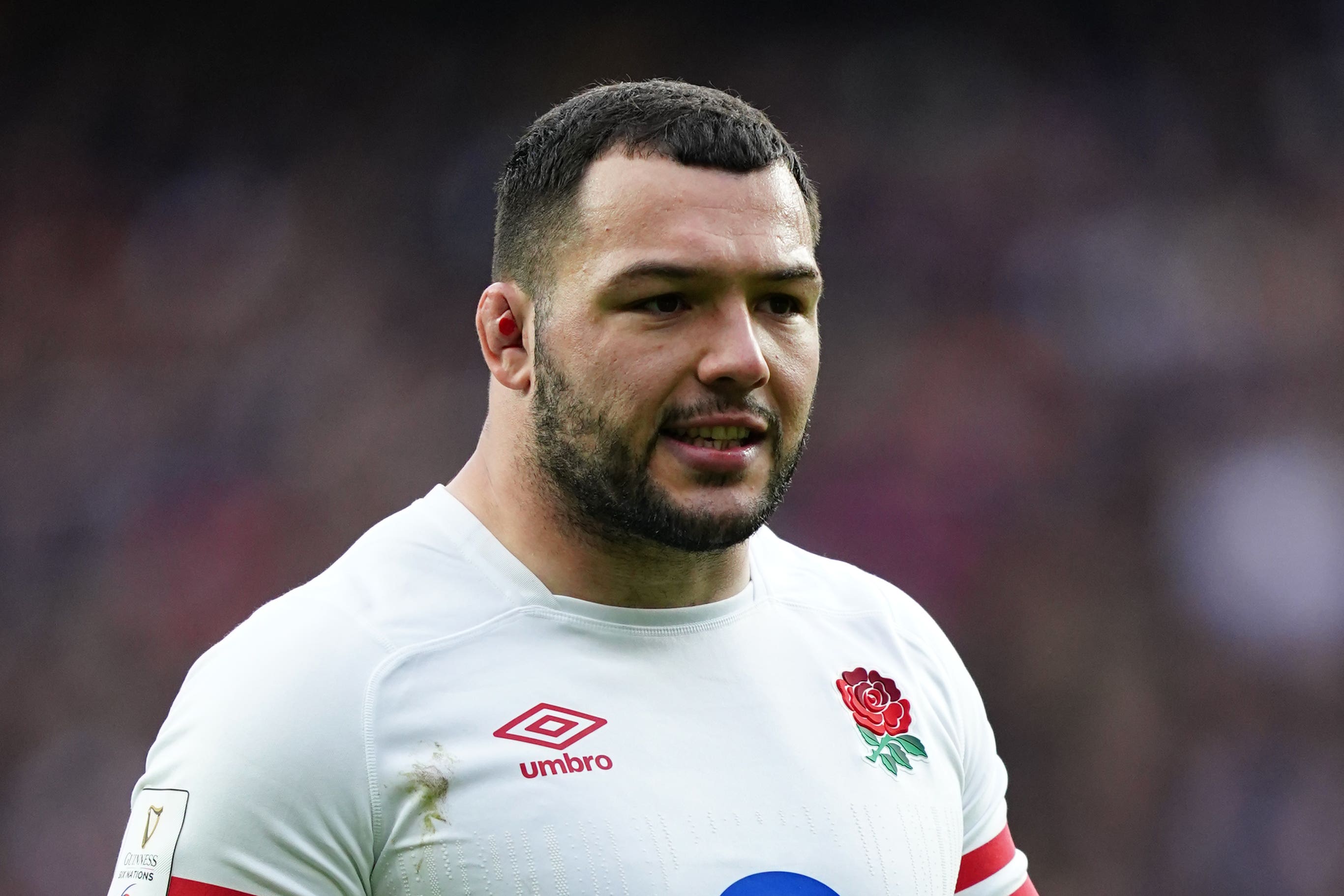Ellis Genge to lead England for first time with encouragement from early mentor
Owen Farrell’s demotion to the bench for the Guinness Six Nations title showdown at Twickenham has resulted in Genge being installed as captain.

Your support helps us to tell the story
From reproductive rights to climate change to Big Tech, The Independent is on the ground when the story is developing. Whether it's investigating the financials of Elon Musk's pro-Trump PAC or producing our latest documentary, 'The A Word', which shines a light on the American women fighting for reproductive rights, we know how important it is to parse out the facts from the messaging.
At such a critical moment in US history, we need reporters on the ground. Your donation allows us to keep sending journalists to speak to both sides of the story.
The Independent is trusted by Americans across the entire political spectrum. And unlike many other quality news outlets, we choose not to lock Americans out of our reporting and analysis with paywalls. We believe quality journalism should be available to everyone, paid for by those who can afford it.
Your support makes all the difference.Ellis Genge will lead England for the first time against France on Saturday lifted by praise from an early mentor for shackling his wilder instincts.
Owen Farrell’s demotion to the bench for the Guinness Six Nations title showdown at Twickenham has resulted in Genge being installed as captain, continuing his rise from Bristol council estate to the most prestigious role in the English game.
The 28-year-old first made any impression when he left Ashton Gate for Leicester in 2016, coming under the guidance of the Tigers’ director of rugby Richard Cockerill, who now oversees England’s scrum.
As a belligerent rookie, unafraid to take on all comers, the challenge facing Cockerill was ensuring the marauding prop kept his ferocity in check.
“At that point I was just happy to keep him out of trouble!” Cockerill joked when asked if he had spotted his potential to become England skipper.
“A few months into him being at Leicester, we’d just had a forwards meeting and were in a bit of jovial mood and I said ‘Gengey, do you want a fight?’ And he went, ‘who’s going to coach the session’?
“Ellis is great fun and as long as he keeps that sense of humour in what he’s doing, he’ll go from strength to strength.
“He was a really aggressive young man, young player, with a lot of natural ability who just needed a lit bit of guidance in how to channel it.
“I’m not sure that he’s mellowed, I just think that he can control it a lot better. He now decides how he behaves and he can bring that to whatever part of the game he needs to.
“When he first came to Leicester I thought it was the perfect move for him, sort of his spiritual home and he’s settled in very quickly.
“The crowd and his team-mates fell in love with him very quickly because of the passion and aggression he showed on the field.
“He’s matured and developed really well. He’s worked really hard at his game both on and off the field and he’s matured into a great person and he’s a wonderful player.
“He leads by example through how he plays. He’s not a big talker but he’s a big man on action and that’s the way he leads – through his actions. He’s very keen to do that against France.”
Cockerill has an affinity with the French game having played and coached across The Channel and once the Six Nations is over he will take up the role of Montpellier’s forwards coach.
But his immediate task is ensuring England strike the right balance between facing down an enormous France pack and ensuring they do not get dragged into the trenches.
“I like the passion and the rawness about French rugby. They love their forward play – not that the English don’t – but that appeals to me having played them myself,” Cockerill said.
“We know what physical attributes they bring, they’re a big team. Tactically they’re very good, but we like to think we’re a physical team as well and it’s a great opportunity for us to test our set-piece.
“The collision is really important and we know the set-piece is going to be really important.
We're going to have to be aggressive when we need to be and really smart when we need to be
“Certainly, if you can match and at times dominate the set-piece, emotionally and psychologically that’s a big win for the opposition.
“We’re going to have to be aggressive when we need to be and really smart when we need to be.
“If we’re just going to go toe-to-toe, they’ll cope with that and we’ll potentially play ourselves into trouble.”